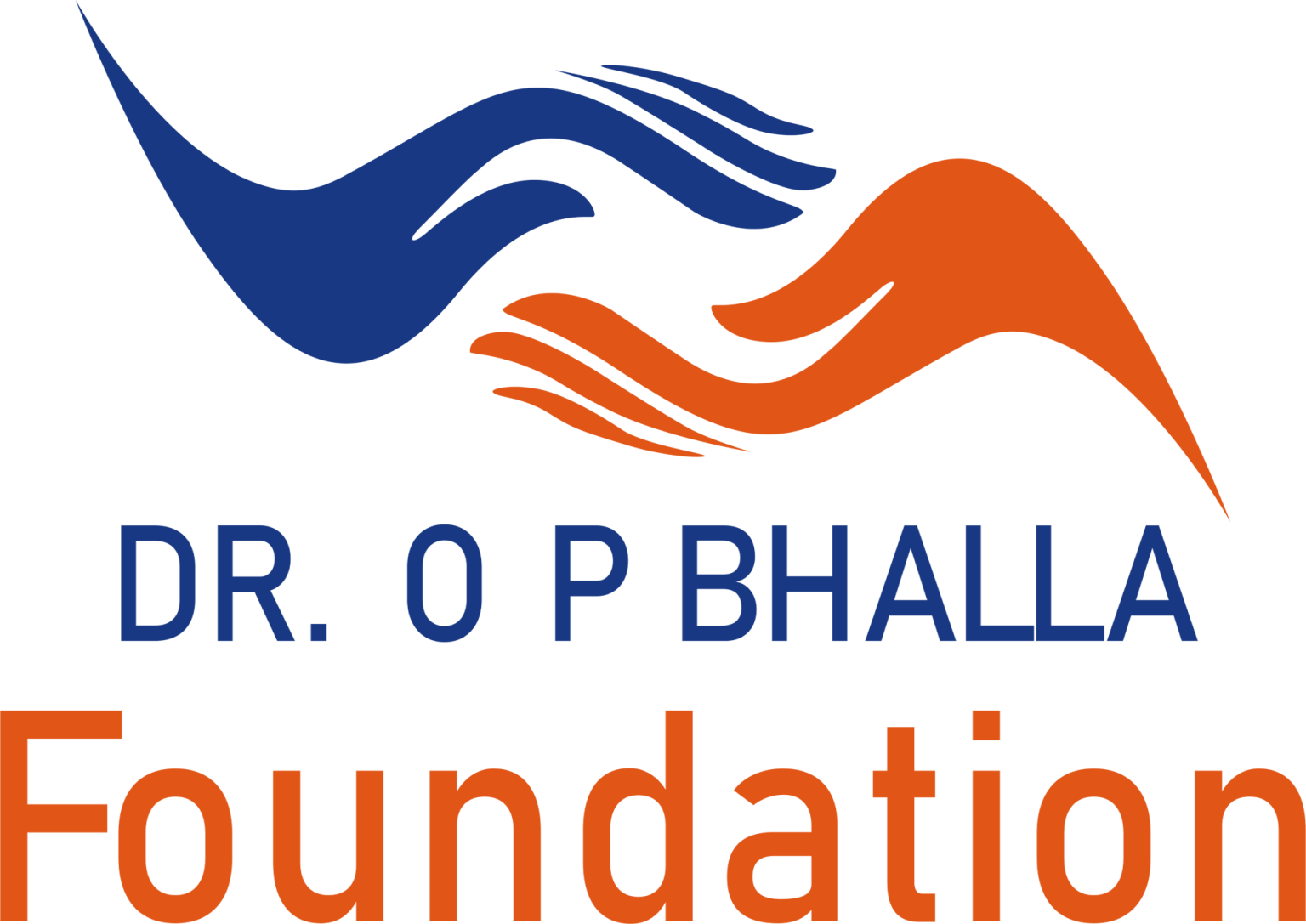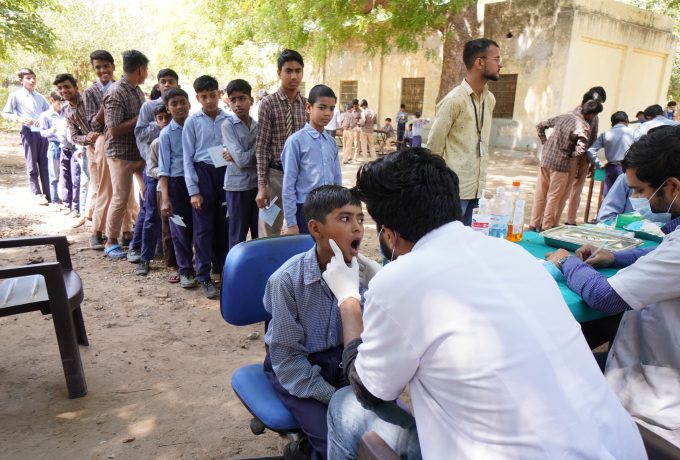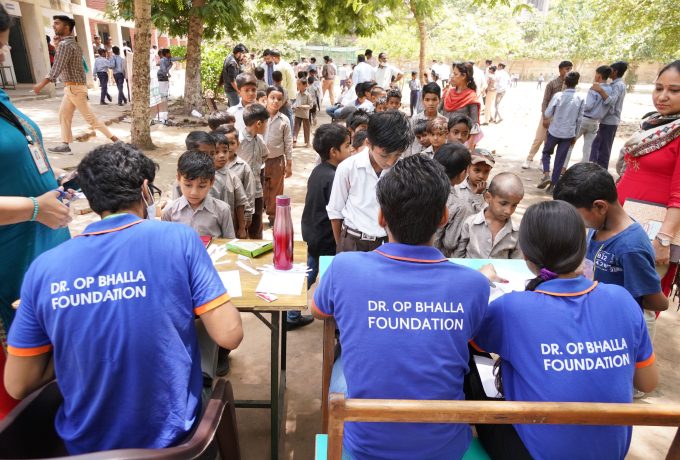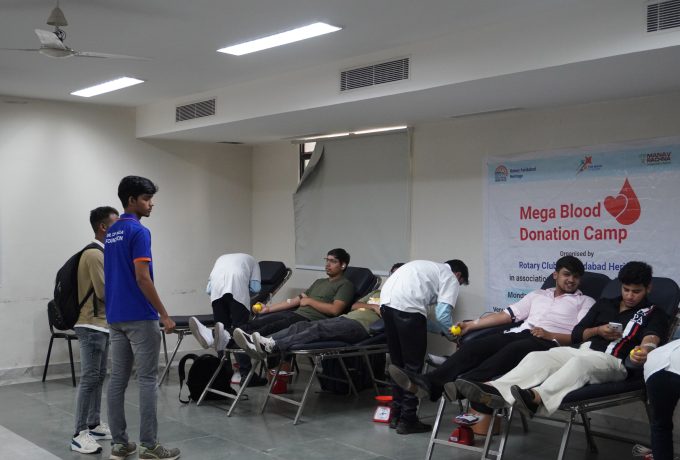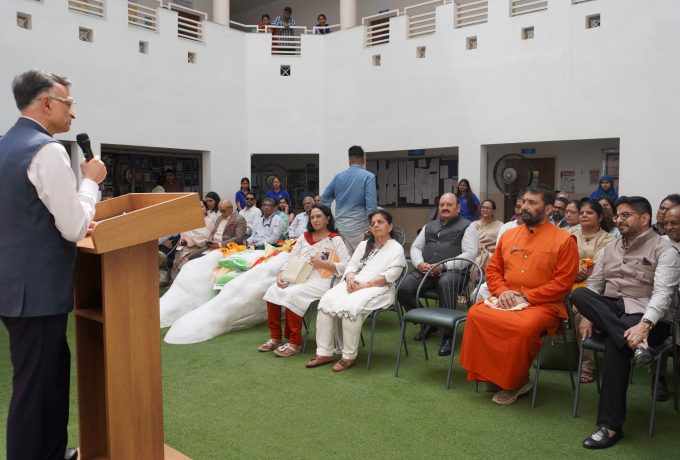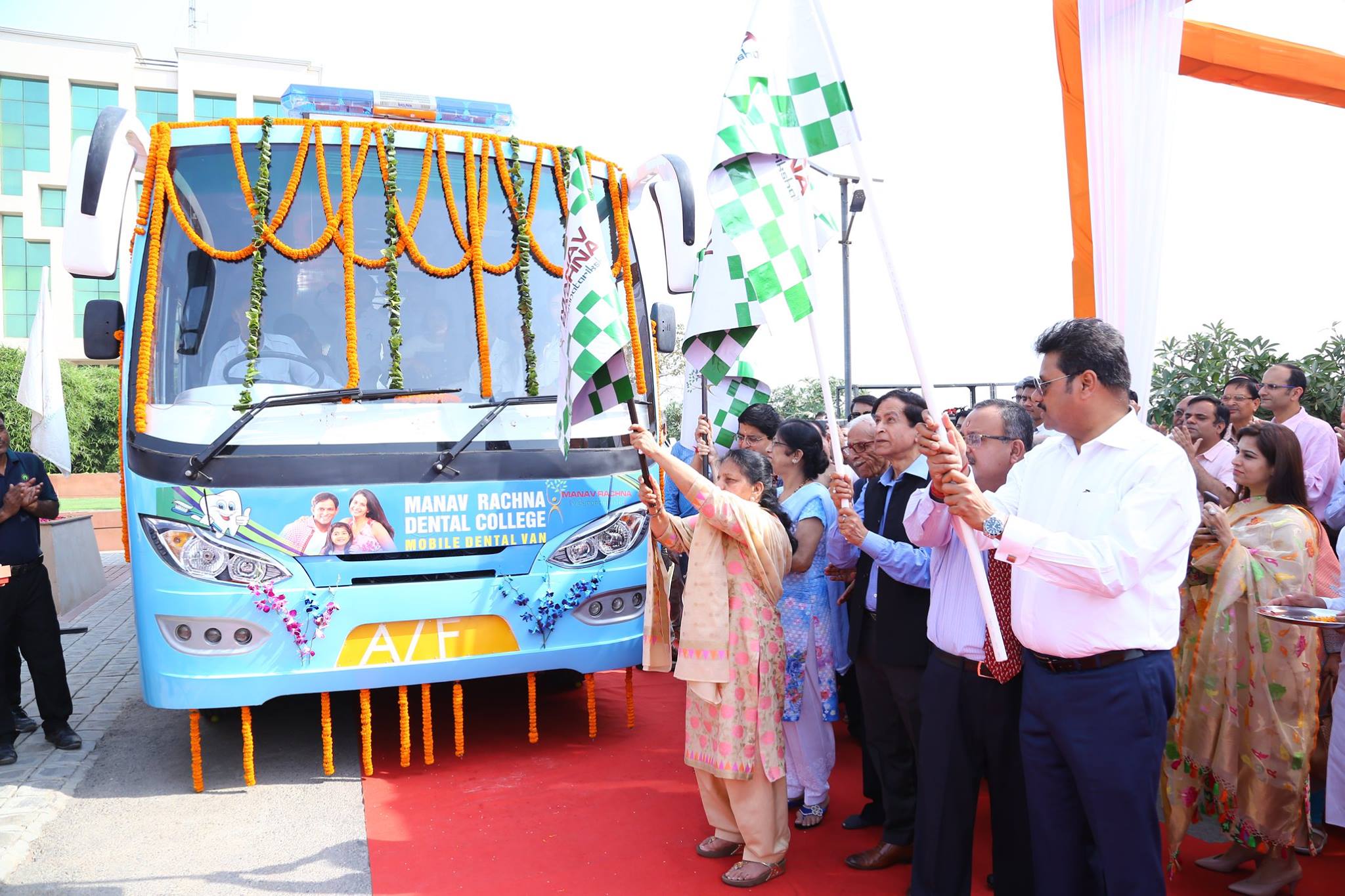DR. O.P. BHALLA COMMEMORATIVE COMMUNITY HEALTH & WELFARE PROGRAM
Importance of Healthcare
Haryana faces critical healthcare challenges, including limited access to medical facilities, high levels of air and water pollution, and rising rates of lifestyle-related diseases. The state has a doctor-patient ratio of approximately 1:1700, below the WHO’s recommended 1:1000, creating barriers to quality healthcare, especially in rural areas.
Nearly 40% of rural areas in Haryana lack sufficient access to basic healthcare facilities, impacting timely treatment for many residents. Organ donation remains critically low, with the state achieving only about 10-15% of the needed donations annually, while blood donation rates meet only 50% of the demand, leading to frequent shortages in hospitals.
Our Initiatives
Healthcare and Holistic Wellness is a core objective of the Dr. O P Bhalla Foundation. Through initiatives aligned with SDG-3: Good Health and Well-being, we work to improve access to essential healthcare services and promote preventive health measures for underprivileged communities in both rural and urban areas of District Faridabad, Haryana. Our programs focus on providing medical aid, organizing health camps, and offering specialized care and counselling, ensuring that underserved populations receive quality healthcare support and guidance.
Mega Blood Donation Drive
An initiative to tackle the problem of blood shortage in hospitals around Delhi NCR during emergencies organized annually on September 16th.
Click HereDonate Life: Join the Organ Revolution
An initiative to motivate the citizens of Faridabad to register as Organ Donors and help tackle the problem of Organ Transplant Shortage.
Click HereCommunity Health Camps
A monthly initiative to promote basic healthcare in District Faridabad. Services include Mental Health Counseling, Nutrition Consultation, Oral Health and Physiotherapy Checkup
Click HereAnemia Mukt Manav Rachna
An initiative aimed to combat anemia across all age groups by promoting awareness, enhancing access to nutritional resources, and providing regular screenings.
Click HereOur Impact
Mega Blood Donation Drive
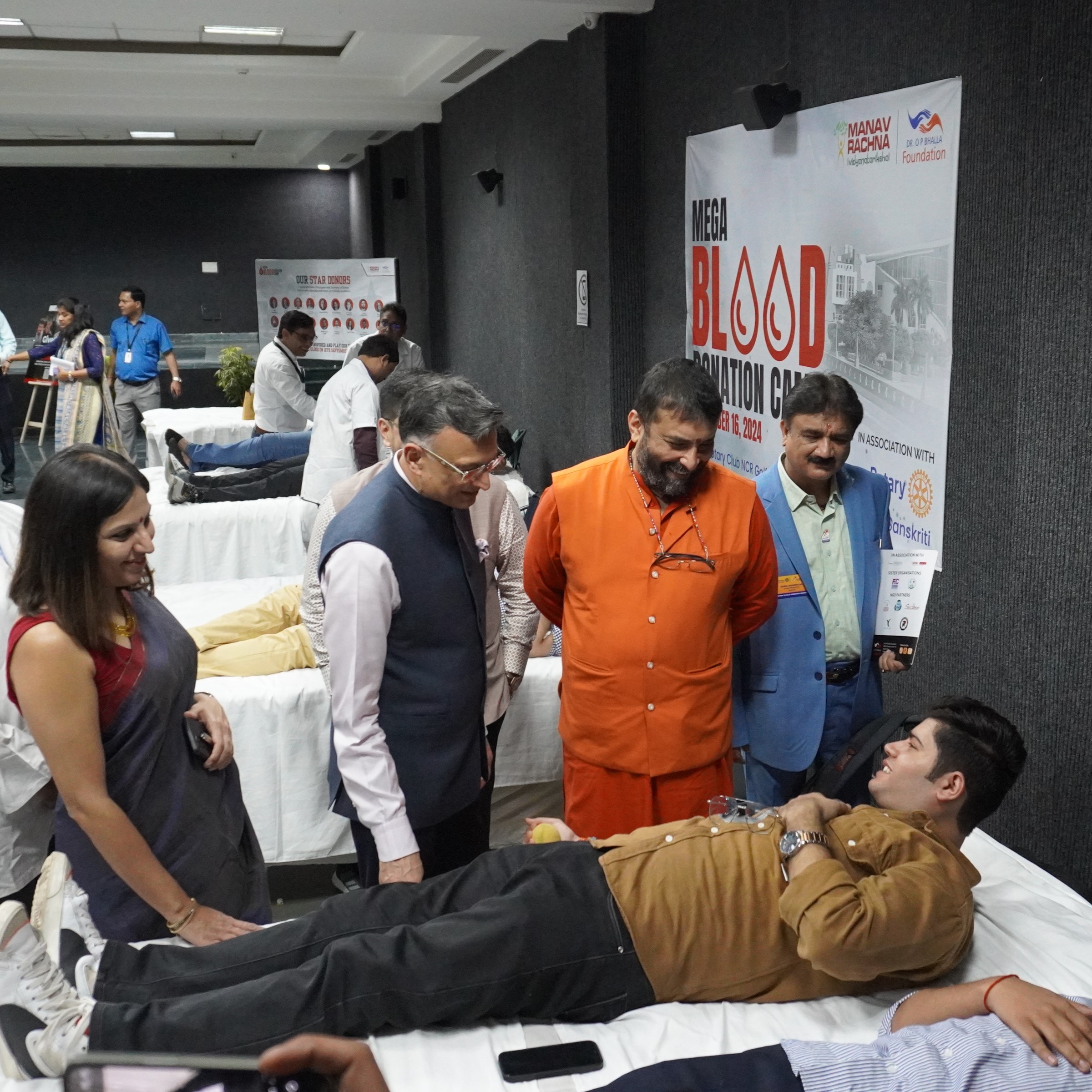
Problem
Delhi NCR faces frequent blood shortages, with local hospitals meeting only 60-70% of the region’s annual blood demand, according to health authorities. This shortfall is especially critical during emergencies and for patients requiring regular transfusions, such as those with thalassemia, cancer, and severe anemia. While the region has a population that could potentially fulfill this need, a lack of awareness and organized drives prevents optimal donation rates, leaving many patients vulnerable and putting immense strain on healthcare resources.
Our Solution
The Mega Blood Donation Drive, aligned with SDG-3 (Good Health and Well-being), is a large-scale initiative to bridge this gap by creating a reliable blood reserve for Delhi NCR. By collaborating with hospitals, NGOs, and volunteers, the drive raises awareness about the importance of regular blood donations, organizes annual donation camps and eradicate the misconception about blood donation.
Donate Life: Join the Organ Revolution

Problem
India has one of the lowest organ donation rates globally, with only about 0.5 donations per million people compared to the global average of 10-30 per million. This shortage of organ donors leads to thousands of preventable deaths each year. In Delhi NCR alone, the need for organs—especially kidneys, liver, and heart—is critical, with patients often waiting years for a life-saving transplant. Myths, misconceptions, and a lack of awareness around organ donation contribute significantly to this gap, deterring many from considering organ donation as a viable option to save lives.
Our Solution
Donate Life: Join the Organ Revolution initiative, aligned with SDG-3 (Good Health and Well-being), seeks to transform organ donation rates in Delhi NCR by creating a robust culture of awareness and participation. Through public awareness campaigns, community workshops, and partnerships with healthcare providers, the initiative educates people on the importance of organ donation, debunks prevalent myths, and provides clear information on how individuals can pledge to donate.
Community Health Camps

Problem
In many underserved communities of Delhi NCR, access to basic healthcare remains a critical challenge, with around 40% of residents in low-income and rural areas lacking adequate medical facilities. For these individuals, health check-ups and treatments for common ailments are often unavailable or unaffordable, leading to untreated health conditions and increased risk of disease. The lack of preventative healthcare also results in a higher burden of chronic diseases, which could be managed effectively with regular medical intervention.
Our Solution
The Free Community Health Camps initiative, aligned with SDG-3 (Good Health and Well-being), addresses this gap by bringing essential healthcare services directly to communities in need. Through regular health camps across Delhi NCR, we offer free check-ups and consultation focusing primarily on Mental Health, Oral Health, Nutrition and Diet Counseling, Physiotherapy and Mammography
Anemia Mukt Manav Rachna

Problem
Over 40% of the adult population estimated to be anemic due to factors such as poor diet, insufficient healthcare access, and lack of awareness about nutritional requirements. Anemia leads to symptoms like fatigue, weakness, and reduced work capacity, impacting productivity and overall health. The condition is especially problematic for the working population, where undiagnosed anemia can reduce productivity and increase healthcare costs.
Our Solution
The Anemia Mukt Manav Rachna initiative, aligned with SDG-3 (Good Health and Well-being), aims to combat anemia across all age groups by promoting awareness, enhancing access to nutritional resources, and providing regular screenings. Through large-scale community drives, health camps, and workshops, we educate the population about the importance of iron-rich diets, distribute iron and folic acid supplements, and monitor hemoglobin levels to ensure early diagnosis and treatment.
Support us
Give Access!
Donate Now!
In many villages and rural areas, people have no access to sanitary pads and proper medical equipment and accessories like masks, sanitizers and medicines. Please reach out to us and donate necessary medical items for the underprivileged.
Contact UsGive Resources!
Contribute!
Many people in rural India have no access to the sanitary products. Donate now to help us buy and provide sanitary products like pads, masks, sanitizers, medicines and more to rural areas and underprivileged & illiterate families.
Donate NowHelp Us!
Reach Out!
Join our Healthcare Initiatives and help us create awareness about menstrual hygiene and other health issues pertaining in the rural areas and small towns. Help us pool resources, expand our reach and diversify our services.
Click HereRead More
MRDC’s Solar-Powered Solution for Community Dental Health
Creating Brighter Smiles: Solar-Powered Solution for Community Dental Health Written by Parinay Wadhwa Quality dental care is often regarded as a luxury instead of a necessity with
